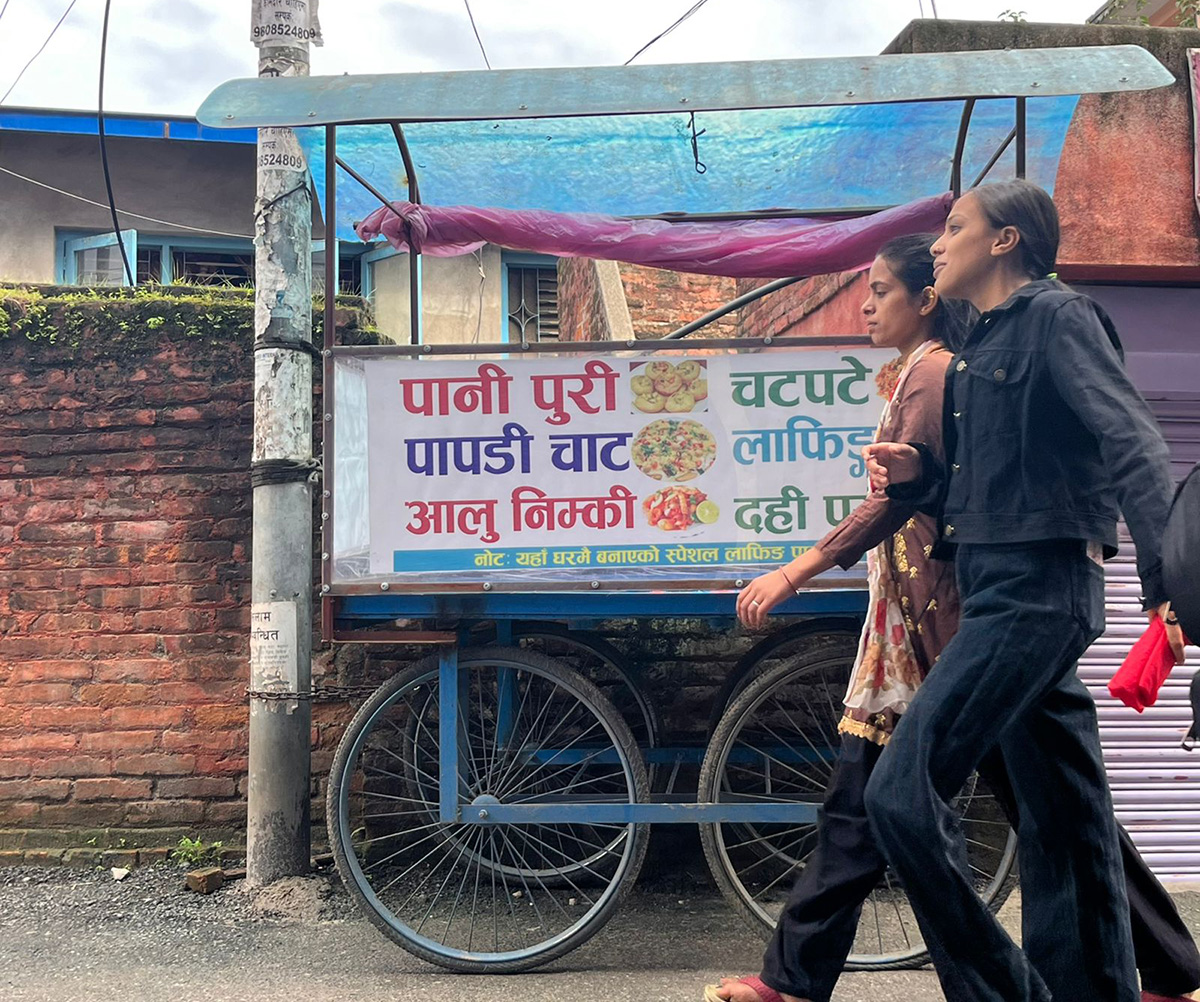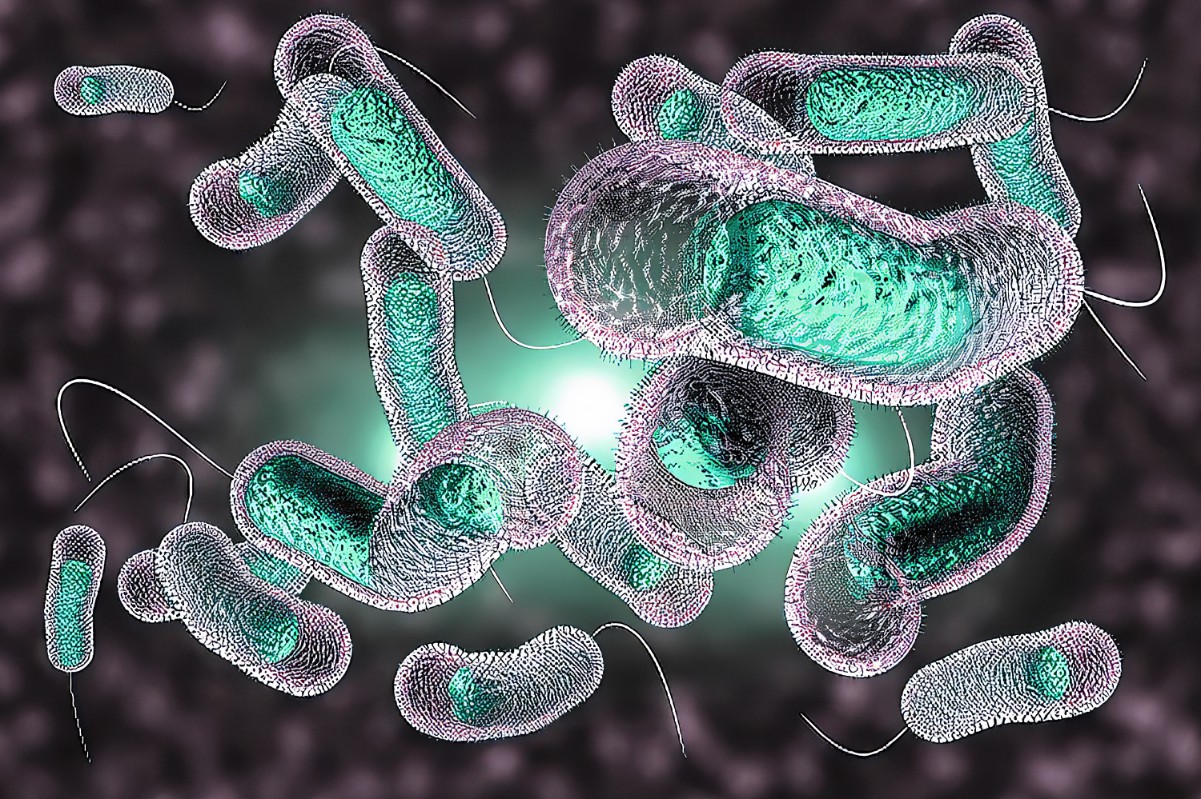Life & Health

Cholera pandemics have scared people the world over for generations. Now a sudden rise in the cases of cholera in Kathmandu valley has forced authorities to introduce various awareness-raising measures, including slapping a ban on popular street food such as Pani-puri and Chatpate.
As of Monday, July 4, 17 cholera cases have been detected in Kathmandu Valley.
The Lalitpur Metropolitan City (LMC)’s move to ban the sale of the popular street food followed reports of a dozen of cholera cases in Kathmandu valley as of June 26. The valley is home to nearly 5 million people and is notorious for its drinking water shortages, polluted rivers and streams.
The Kathmandu Metropolitan City (KMC) has also banned the sale of street foods.
Those infected with acute diarrhoeal disease are from the Bagbazar, Dillibazar, Kapan, Balaju, Thankot, Naikap, Sanepa and Balkhu, according to the Epidemiology and Disease Control Division (EDCD) of the Ministry of Health.
Cholera is an acute diarrhoeal infection which is caused by consumption of food or water contaminated with the bacterium called Vibrio cholerae. If untreated, a patient could die within hours.
Concerns

Often a lack of safe water and sanitation has been found fuelling its outbreaks. A highly transmissible disease, cholera remains a global threat to public health and is an indicator of inequity and lack of proper safe water and sanitation facilities.
Soon after the news of the first cholera cases, Kathmandu Metropolitan City (KMC) swung into action, launching public-awareness campaigns and even distributing water purifiers in several neighbourhoods.
With more and more cholera cases being detected, experts seem worried. Dr Prabhat Adhikari, an infectious disease expert, told NepalMinute: “Such sporadic cases of the diarrhoeal diseases in Kathmandu valley indicate that there may be many more unreported cases.”
Most people infected with Vibrio cholerae do not develop any symptom, although the bacteria remain in their faeces for up to ten days after infection. “People transmit the disease without any knowledge,” added Dr Adhikari.
Causes
According to US Centre for Disease Control and Prevention, approximately one in 10 people who get sick with cholera will over time develop severe symptoms such as watery diarrhoea, vomiting, and leg cramps.
But people come to the hospital only when they are seriously ill. “There are people visiting the emergency wards in the hospital,” said Dr Sher Bahadur Pun, Clinical Research Unit chief at Sukraraj Tropical and Infectious Disease Hospital.
The cholera bacterium is usually found in water or in foods that have been contaminated by feces (poop) from a person infected with the bacteria. Cholera occurs and spreads in places with inadequate water treatment, poor sanitation, and inadequate hygiene.
Water samples collected from the home of the cholera patients in Bagbazar showed the presence of E. coli and coliform bacteria in the water. The patients had stored water from tube wells and were drinking it without purification or boiling, according to the EDCD.
“As it is a rainy season, the sources of water were found contaminated with flooded water. Also, the contaminated water from the drainage pipes might have seeped into water pipes with leakages,” said Dr Adhikari.

Garbage connection?
The EDCD suspects accumulation of garbage for several weeks that could have led to water contamination. “Garbage was not collected in the city earlier and it gave a favourable environment for the growth of bacteria,” said Dr Hemanta Ojha, an expert at the EDCD. “The rain contributed to the spread of the bacteria.”
Only 17 cases have been detected, but experts are worried that the bacteria could have spread to several communities. However, the government is yet to identify the sources of the contamination.
“We are collecting and testing water from areas where patients are diagnosed with cholera,” said Dr Chuman Lal Das, director at the EDCD.
Medical experts say the sooner the sources of contamination are known, the easier it will be prevent further spread of the infection.
Said Dr Adhikari, the infectious disease expert: “Contaminated water has mixed with drinking water sources. Therefore people are suffering from cholera and other water borne diseases (such as diarrhoea typhoid, dysentery, hepatitis A and E).”
Tips
The doctors therefore advise people to practice healthy habits to protect themselves from cholera. Dr Das said, “The patients diagnosed with cholera were found to have eaten Chatpate. We therefore request people not to eat Chatpate and Panipuri as they are not hygienic.”
During the 19th century, cholera spread across the world from a reservoir in the Ganges delta in India, according to the World Health Organization (WHO). Six subsequent pandemics killed millions of people across all continents. The seventh pandemic started in South Asia in 1961, reached Africa in 1971 and the Americas in 1991, it says.
WHO says cholera can cause severe acute watery diarrhoea: “It takes between 12 hours and five days for a person to show symptoms after ingesting contaminated food or water. Rapid loss of body fluids leads to dehydration and shock. Cholera affects both children and adults and can kill within hours if untreated.”
A document circulated by the Ministry of Health says infants who are not breast-fed but are given formula milk, and those who are malnourished remain at high risk to suffer from cholera. Those who are ignorant of their personal health and hygiene, and children who have not been vaccinated are prone to the diarrhoeal diseases, it says.
Those with underlying health condition such as diabetes, and chronic illnesses too are prone to the disease. “It will be severe in them,” said Dr Pun.
Strengthening surveillance and early warning systems can help detect the cases and put in place control measures, say experts. “Diagnostic kits to test cholera should be made available in all the private and public health care centres for early detection of the cases,” suggested Dr Adhikari.
The health practitioners prescribe oral cholera vaccination in collaboration with the World Health Organization (WHO).
Pani-puri and Chatpate ban
Meanwhile, Lalitpur has banned popular street foods, besides launching awareness-raising steps. Sitaram Hachhethu, chief of Lalitpur Metropolitan Police said, “The foods sold on the streets are unhygienic, they are not covered and are sold in open air. So, the health of the public is more important than some individuals’ business.”
The Kathmandu Metropolitan City too has banned the sales of street foods. It has also taken some steps such as distributing Piyush and Chlorine and Oral Rehydration Solution in cholera-prone areas. “We have also decided to educate school children about the risks related to contaminated food and water,” said Mahesh Kafle, assistant spokesperson of KMC.
Nepali Doctors’ recommendations:
• Repetitive intake of oral dehydrated solution, intake of liquid, intake of easy to digest foods, intake of zinc tablets upon the prescription of health care workers
• Drink safe water and eat hygienic food items
• The patients must be immediately taken to the health care centres if he or she cannot eat or drink, if blood is seen in stool, regular vomiting, is more thirsty and there is an onset of fever
• Wash hands with soap after defecation and before handling food or eating
• Drink boiled water even if it’s a jar water
• Use filters with UV lights if one is using filter
• Wash fruits with boiled water
• Eat properly cooked foods
Cholera facts put together by WHO:
• Most of those infected will have no or mild symptoms and can be successfully treated with oral rehydration solution.
• A global strategy on cholera control, Ending Cholera: a global roadmap to 2030, with a target to reduce cholera deaths by 90% was launched in 2017.
• Researchers have estimated that each year there are 1.3 to 4.0 million cases of cholera, and 21 000 to 143 000 deaths worldwide due to cholera
• Cholera is an acute diarrhoeal disease that can kill within hours if left untreated.
• Provision of safe water and sanitation is critical to prevent and control the transmission of cholera and other waterborne diseases.
• Severe cases will need rapid treatment with intravenous fluids and antibiotics.
• Oral cholera vaccines should be used in conjunction with improvements in water and sanitation to control cholera outbreaks and for prevention in areas known to be high risk for cholera.

_11zon1681280198.jpg)




